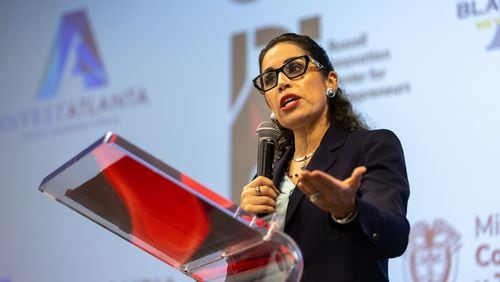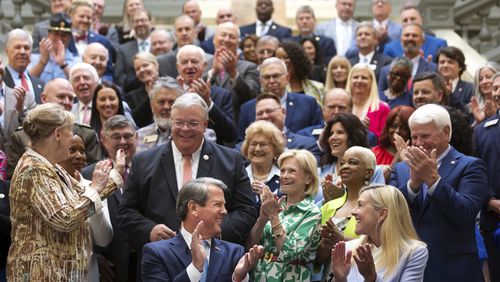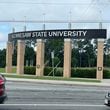Atlanta city council members pleaded Wednesday with Invest Atlanta to do more to bring grocery stores, coffee shops and other retailers into southwest Atlanta.
District 10 Councilwoman Andrea L. Boone was among those who pressed Invest Atlanta officials at the fiscal year 2025 budget hearing. She said that neither District 10 or 11 had a breakfast spot like an IHOP or even a Starbucks, and that it was “disheartening to sit here year after year after year, and our districts look exactly the same.”
Invest Atlanta is the city’s economic development arm. Council members are in the process of hearing from leaders in each city department as they get ready to approve a new budget for fiscal year 2025 in June.
“Southwest Atlanta deserves more,” Boone said. “And as long as we sit in these seats, we’re going to fight for our neighborhoods. We’re not going to be silent because it’s not fair. They pay taxes and they deserve something from Invest Atlanta.”
Invest Atlanta president and CEO Eloisa Klementich, Noah Downer, senior vice president of economic development, and chief financial officer Nino Chiappetta attended the briefing.
Addressing the council members’ concerns, Klementich said Invest Atlanta targets trade conferences to market underserved areas to grocery stores and retailers but some of them are still resistant.
“We are asking grocers to make decisions to come, and they’re not there yet,” she said.
She cited a partnership with Nourish + Bloom Market which was the recipient of an $600,000 Economic Opportunity Fund for container grocery stores in Pittsburgh Yards, and another location in District 11. But she acknowledged more could be done.
In recent years, the city has taken action to reduce food insecurity and food deserts. In 2015, just over half of the city’s residents lived within one half-mile of grocery stores offering fresh food, but that rose to 75% of residents in 2020, according to the city’s Fresh Food Access Report.
During their presentation, Invest Atlanta officials said one of their priorities for the 2025 fiscal year was to attract major supermarket and grocery store chains.
“We will continue to focus on attracting grocery stores, driving enhancements for our neighborhood markets and supporting innovative models,” Downer said.
But District 11 Councilwoman Marci Collier Overstreet echoed other officials when she said it wasn’t clear to her from the presentation how much investment would end up in her district. She said this was the seventh year in a row that she had tried to secure funding in southwest Atlanta, specifically for a grocery store.
“I know you’re highlighting that you’re prioritizing grocery but this is year seven,” she said. “We still don’t have one.”
During the presentation, officials recounted some of the agency’s achievements. Those included $9 million of direct investment in small business programs and assistance to 843 small businesses.
Invest Atlanta said it secured $20 million in grant funding from Wells Fargo and awarded $6.2 million in loans and grants to small businesses. It said 80% of the businesses it funded were black-owned and 73% were woman-owned.
CFO Chiappetta said the authority’s proposed budget trend for the Department of Economic Development was $3.5 million with an overall budget increase of $500,000 for fiscal year 2025.
About the Author







